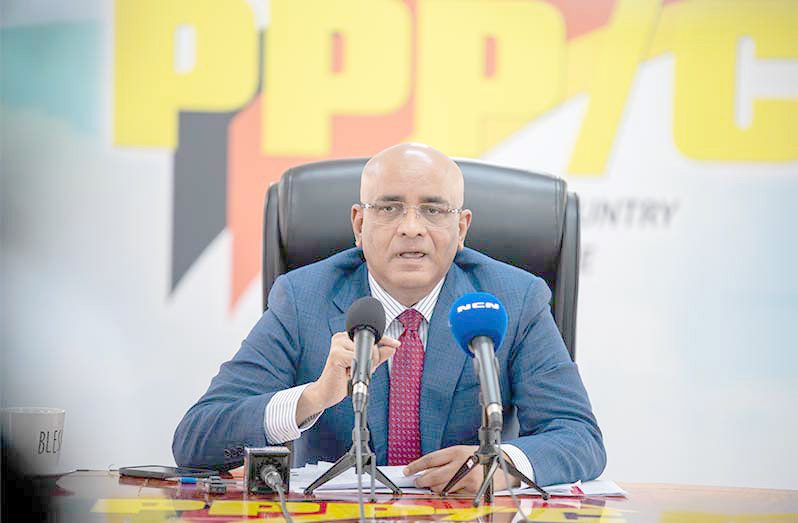WITH the demand for foreign currency surging in Guyana over the past five years, Vice-President Dr. Bharrat Jagdeo has noted that the Bank of Guyana has the capacity to intervene when necessary, and has been able to stay on top of the situation.
Dr. Jagdeo made these remarks during his Thursday press conference at the People’s Progressive Party/Civic (PPP/C) headquarters, during which he noted that demand has grown from some US$2 billion in 2020 to a projected US$9 billion this year.
He went on to note that the foreign currency market has changed in complexity and depth, in that there has been an increase in imports of consumer goods, intermediate goods and capital goods.
“Clearly, you have seen the foreign currency to support imports now… You are talking about nearly a seven billion increase in total imports, so you have to find the foreign currency for all of this,” he said.
He indicated that he had made it clear previously that the Central Bank has the capacity to intervene in the market when necessary.
While the market has changed in depth and complexity, he noted that there are new features in the market.
According to him, capital imports have grown from over $600 million to over four billion, which, he said, means that Guyana is now financing a lot of capital expansion in the country.
This, he said, is one feature that has seen an increase in demand for foreign currency, with the second one being the demand for foreign currency in neighbouring Trinidad and Tobago.
“Over the last few years, we have witnessed a phenomenon here, where we believe that some of the invoices submitted by companies are inflated because they are local companies, but inflated invoices so that when the payment goes to their suppliers, it’s for goods that would go into Trinidad and Tobago,” he said.
Added to this, Dr. Jagdeo noted that some of the Cambios and banks, to a lesser extent, are now selling foreign currency to Trinidadians who come here to purchase.
Another instance, he noted, is of local companies capitalising on the issue, and buying foreign currency from the banks at a standard rate, and are now selling to Trinidadians at a higher rate.
“So, we have a big additional demand now, apart from the growth generally from the economy, and the increase in consumer goods, intermediate goods, capital goods import… we also have this new demand,” he said.
In giving a scenario, he noted that while it may take two weeks to acquire foreign currency here, the situation is far worse in some neighbouring countries.
However, he added, “We have enough resources to intervene in the market. I’ve dealt with this in the past to ensure that the domestic demand, even the enhanced domestic demand, which is for legitimate purpose, will be satisfied.”


.jpg)











